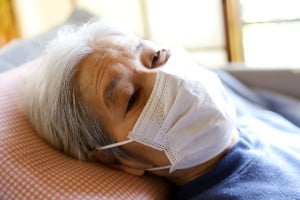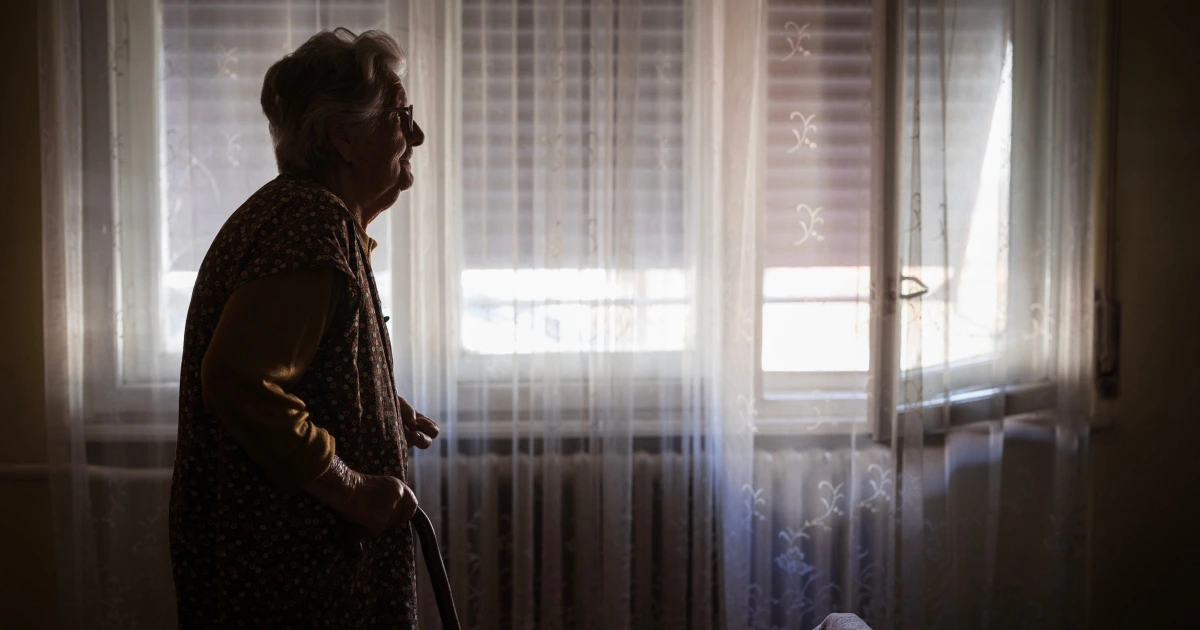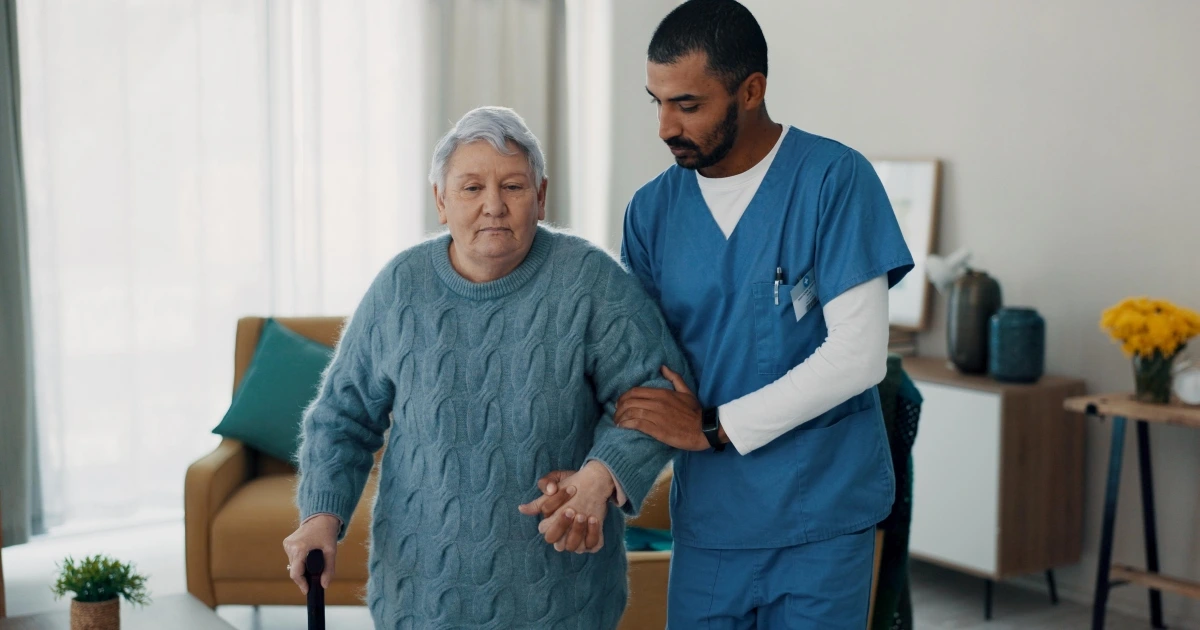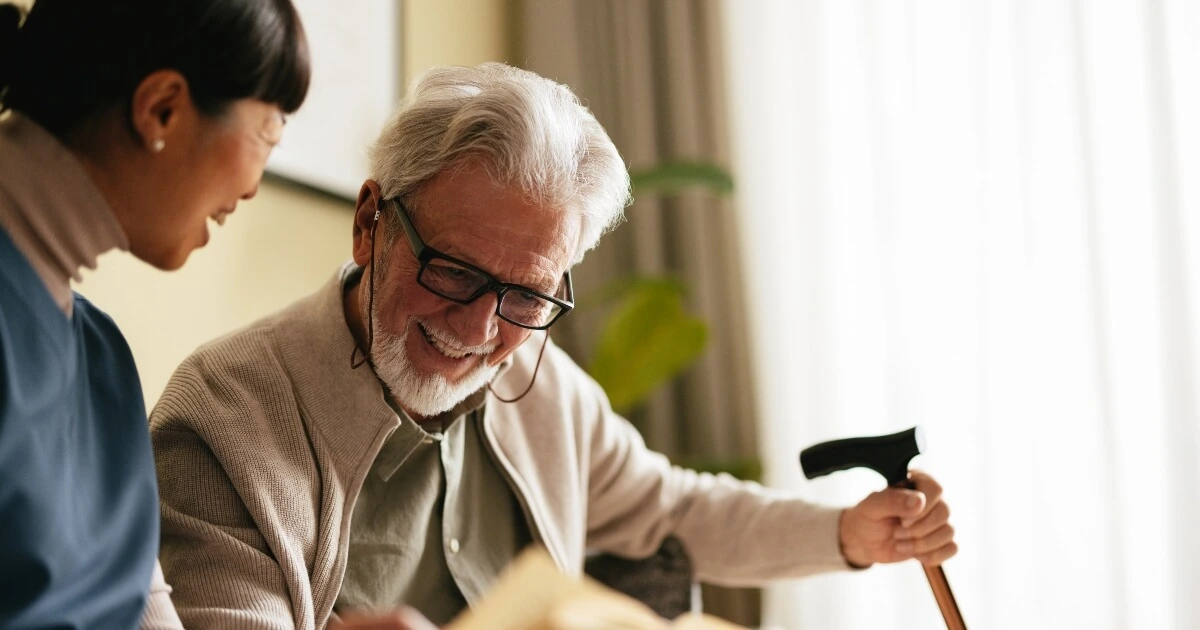 Falling is a leading concern for residents in long-term care. Many residents are frail for age-related reasons, making them more prone to having a fall. For others, however, the risk is greater because of an underlying medical condition that may make the consequences after a fall more dangerous.
Falling is a leading concern for residents in long-term care. Many residents are frail for age-related reasons, making them more prone to having a fall. For others, however, the risk is greater because of an underlying medical condition that may make the consequences after a fall more dangerous.
PKSD explains more about nursing home care plans, including what they are and whether a nursing home may be liable for failing to follow a resident’s plan of care after a fall.
If your loved one in long-term care suffered damages due to negligence after a fall, we are prepared to help. Our Wisconsin nursing home abuse lawyers are compassionate and dedicated to protecting the rights of elderly residents. Our strong and proven track record speaks volumes of how hard we work for our clients.
Call our trusted law firm for legal help. 414-333-3333
What is a Nursing Home Plan of Care?
A nursing home plan of care is like a road map for caregivers to follow. It is written to address each resident’s current and unique needs, abilities and health concerns. Under federal law, a resident’s plan of care must:
- Have measurable objectives
- Include timetables
- Be specific
- Periodically be reassessed and revised
- Be in writing
- Reflect the resident’s needs and concerns
Broad care statements are not acceptable in a plan of care. This is necessary since much of a resident’s daily care is handled by staff who are not a trained doctor or nurse. Therefore, directions need to be clear enough that anyone can understand them. They also must be detailed so that a resident feels like his or her needs are being considered and met.
How Are Needs Assessed or Reassessed?
Wisconsin nursing home residents must have an initial health assessment completed within four weeks of admission. The resulting initial care plan must include assessments from the patient’s doctor and all other appropriate professionals from the facility. Follow-up assessments must occur periodically to ensure there are no changes. Information that should be considered, include:
- The specific medical, health or personal services the resident needs
- Type of staff needed to administer these services
- How often those services are needed
- Any special equipment or supplies that are required
- Special dietary needs a resident may have, along with food preferences
A mobility assessment will take place upon admission to determine if a resident is a fall risk. If a resident presents with mobility issues, the facility may add protection or interventions to reduce the risk of a fall.
Some residents may have additional concerns to check for after a fall because of an underlying medical condition or prescription drugs they are taking. For example, patients on blood thinners should be carefully monitored for a subdural hematoma (brain bleed) if they fall and hit their head.
Do Family Members Have Input into a Resident’s Care Plan?
Family members are encouraged to participate in their loved one’s care plan meeting. This meeting discusses what a resident can expect on a day-to-day basis, including meals, medical and nursing needs, and more. The professionals who will be providing daily care for your loved one (nursing assistants, doctors, physical therapists and nurses) will also attend and have input into this meeting.
Liability if a Plan of Care is Not Followed After a Fall
To determine liability, an attorney will need to investigate and determine if an initial assessment was done. If an assessment was done, it is also necessary to determine whether the plan of care was created, communicated to facility staff and properly followed.
Other factors to consider that could help determine if a nursing home is liable for a resident’s fall and subsequent injuries:
- Was the resident known to be a fall risk and if so, did the facility take preventative measures to reduce that risk?
- Did nurses, nursing assistants and other facility staff treating the resident properly follow his or her plan of care?
- After the fall, was there a re-evaluation of the resident’s care plan to determine if changes were needed?
- Were there any environmental hazards, such as a wet floor left unattended, that led to the fall?
- Did the care plan document any known physical, mental or health issues that made walking without help difficult?
- Was the resident on any medications known for side effects, such as dizziness, that could increase the risk of a fall?
- Did staff follow proper procedures after the fall, including evaluating and monitoring the resident?
- Did the facility follow up to investigate the cause of the fall and implement interventions to ensure it did not happen again?
- Was the fall, including the circumstances, resident outcome and caregiver response, properly reported?
- Did the facility alert the resident’s physician, and did the physician properly examine and monitor the resident?
If your loved one suffered a fall in a nursing home, it is a good idea to speak with a qualified attorney about your situation. If you have a case, he or she will investigate the circumstances that caused the fall and whether the nursing home acted appropriately afterward. If a nursing home is found negligent in the care of your loved one, you may be eligible to seek damages on his or her behalf.
Call PKSD for Experienced Nursing Home Legal Help
At PKSD, we work tirelessly to hold at-fault parties accountable for acts of negligence and have been doing so for decades. We have extensive experience handling cases involving nursing home abuse and negligence, recovering millions on our clients’ behalf. This recovery record includes a $4.6 million settlement in a nursing home pressure sore case.
If you suspect your family member has been harmed by negligence in his or her nursing home, we are ready to help. Contact our law offices to set up a case review with one of our qualified attorneys. There is zero cost for this initial meeting, and if we represent you, there is also nothing to pay up front. We take these cases on contingency, so unless we win compensation for you, we do not collect our fees.
Millions Recovered. 414-333-3333





